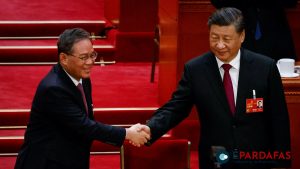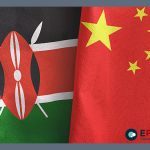
The Quiet Invasion: How the CCP Infiltrates the US Through Academia

Since the inauguration of the Biden administration in 2021, the United States has been grappling with the intricate challenge of countering the infiltration of Chinese Communist Party (CCP) influence, particularly within academia. The lifting of President Trump’s ban on WeChat and the subsequent cancellation of the ‘China Initiative’ brought this issue into sharp focus.
One of the most prominent cases illustrating this infiltration is the arrest of Dr. Charles Lieber, head of Harvard University’s Department of Chemistry and Chemical Biology. Dr. Lieber, a respected nanoscientist, was accused of being involved in the CCP’s “Thousand Talents Plan,” receiving substantial sums to establish a research lab at Wuhan University of Technology. This case, along with others like that of Zheng Zaosong and Ye Yanqing, underscores the extent of the CCP’s efforts to recruit overseas talent for its strategic objectives.
The “Thousand Talents Plan,” launched in 2008, has been a cornerstone of the CCP’s strategy to acquire sensitive information and technology from abroad. By attracting top talent from prestigious universities and research institutions, the plan facilitates the transfer of knowledge and resources back to China. However, it has also become a target of scrutiny, particularly by the US government.
The Trump administration’s ‘China Initiative’ aimed to identify and prosecute individuals suspected of engaging in economic espionage, with a particular focus on those affiliated with the “Thousand Talents Plan.” The arrest of Meng Wanzhou, Huawei’s CFO, and the subsequent suicide of leading Chinese-American scientist Zhang Shousheng highlighted the gravity of the issue. Zhang’s ties to Danhua Capital, which allegedly facilitated the transfer of technological intelligence, further underscored the CCP’s systemic approach to espionage.
In response to these threats, the US has implemented stringent measures, including restrictions on visas and the addition of Chinese entities to export control lists. Proclamation 10043, signed by President Trump, suspended the entry of Chinese students associated with the CCP’s military-civil fusion strategy, effectively curbing the flow of talent and knowledge to China.
However, the Biden administration’s decision to lift certain restrictions, such as the ban on WeChat, has raised concerns about the continuity of these efforts. Despite the CCP’s pressure to repeal Proclamation 10043, the US has maintained its stance, leading to continued tensions between the two powers.
Furthermore, individual states like Florida have taken additional steps to counter CCP influence, banning Chinese apps on public university campuses and restricting Chinese nationals from purchasing property. These measures reflect a broader recognition of the multifaceted nature of the CCP’s influence and the need for comprehensive strategies to address it.
As the CCP continues to expand its reach into academia and research institutions worldwide, the United States faces an ongoing challenge in safeguarding its national interests and intellectual property. By remaining vigilant and proactive in countering these threats, the US can mitigate the risks posed by CCP infiltration and maintain its position as a global leader in innovation and research.














Comments